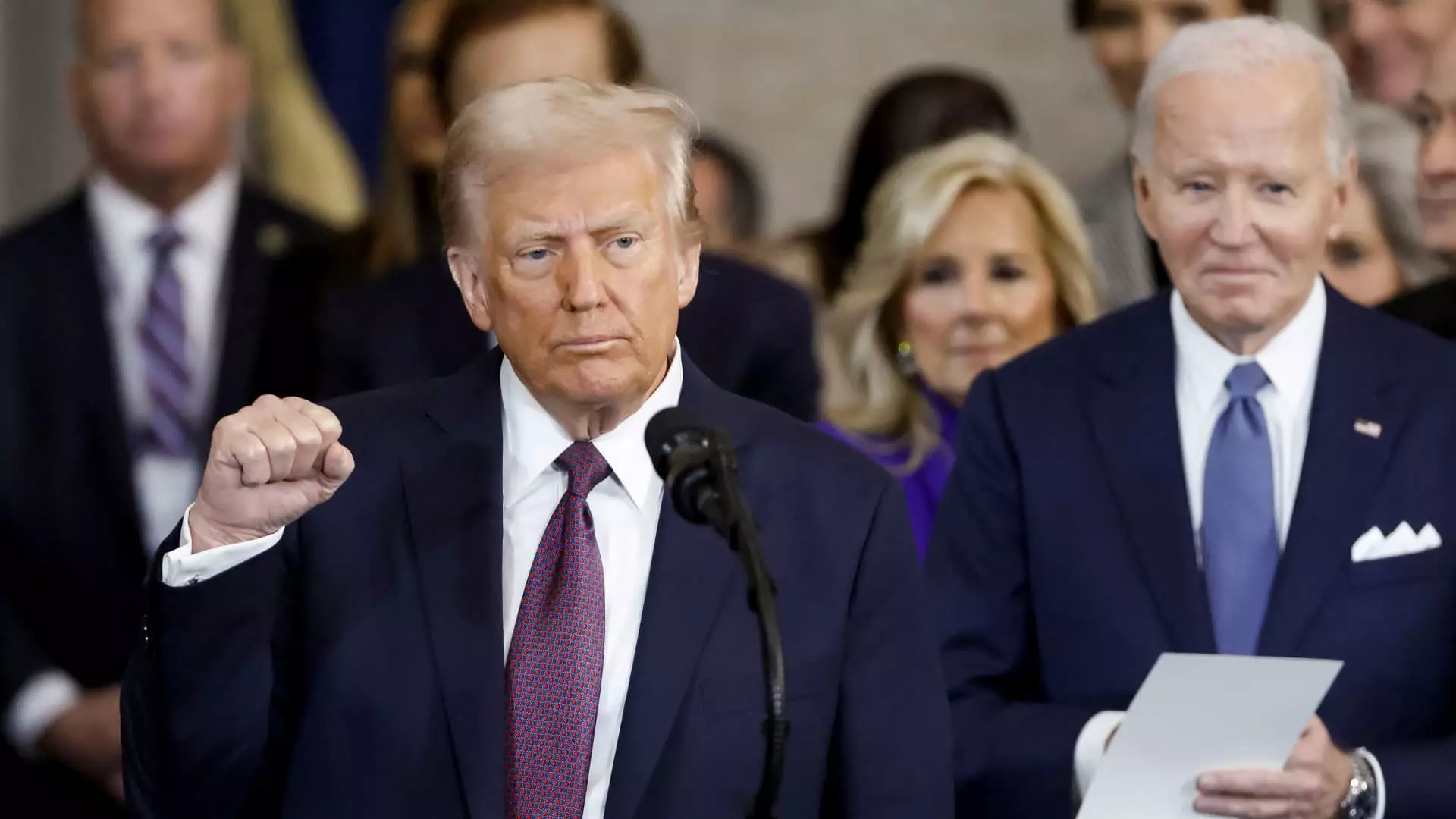In what can only be described as a blame-shifting exercise, Commerce Secretary Howard Lutnick’s recent remarks highlight a troubling trend in the political landscape—where accountability takes a backseat to finger-pointing. During a heated discussion on Bloomberg television, Lutnick pointed fingers at former President Joe Biden, claiming that he is responsible for the recent downturn in economic performance and stock market plummets. It’s puzzling, to say the least. Just when one thinks American politics couldn’t sink any lower, officials push the narrative that the economic mess is merely a byproduct of Biden’s tenure rather than a consequence of complex global dynamics and policy decisions made in recent years.
The absurdity of this assertion becomes particularly evident when one considers the hard data available. Despite Lutnick’s heated defenses of President Trump, the U.S. economy did see a growth rate of 2.8% over the past year. It’s as if Lutnick wants to rewrite economic history to serve a political narrative that favors Trump and his administration. Economic realities are rarely black and white; attributing blame to a single figure oversimplifies the problem and ignores the nuanced interplay of various factors that influence market fluctuations.
Inflation and Market Responses: A Complex Web
As Lutnick and Trump bemoan the “inflation nightmare,” it’s essential to recognize that the inflationary pressures we face are not solely the result of one administration’s failures or successes. Yes, inflation skyrocketed to a staggering 9.1% in mid-2022, but the subsequent downward trend showing 2.9% inflation by December illustrates the inherent complexity of economic fluctuations. Yet, rather than own this complexity, leaders prefer to simplify it into a narrative that suits their political motives.
Even as the market battles through dips—exemplified by the Dow Jones Industrial Average losing over 1,300 points in just two days—many seem to overlook the nuances of economic recovery. Lutnick, in promoting a narrative of resilience and optimism, overlooks the reality that economic recovery is often non-linear and affected by global events, supply chain disruptions, geopolitical strife, and even the ongoing fallout from the global pandemic.
Statistics and Reality: Misleading Interpretations
The ADP’s recent report showcasing a mere 77,000 new jobs created in February starkly contrasts with previous months’ upward revisions, revealing a painfully slow recovery. How do we resolve this alarming decline against Lutnick’s rosy outlook that claims Trump is industriously moving toward economic might? Instead of fostering meaningful discussions about the ways that different administrations can learn from one another, the dialogue is mired in a childish blame game, leaving the American public and investors confused and frustrated.
The absurdity deepens as Lutnick suggests that the pitfalls appearing in current economic reports shouldn’t be attributed to the current administration. In a fit of exasperation, he remarked, “Stop it, stop it, stop it,” as if simply dismissing the data could obscure uncomfortable truths. It’s nothing short of disheartening; it’s a political tactic that shields leadership from accountability while simultaneously dismissing valid economic concerns.
A Dangerous Approach to Economic Statistics
One particularly troubling aspect of Lutnick’s comments was his suggestion to modify the way GDP is calculated. By eliminating government spending from this vital statistic, he’s not only proposing a questionable methodology but also advocating for a politically motivated revision of economic data. Fortunately, such assertions have met significant pushback from the economic community, indicating that an attempt to manipulate how we measure economic health could result in distortion rather than clarity.
Elon Musk, with his usual bravado, chimed in endorsing this revisionist concept. But the suggestion to alter GDP calculations based on political whims generates significant concern about transparency and accountability in economic reporting. It transforms economic discussions into a puppet show, further entrenching the belief that political agendas weigh more heavily than rigorously analyzed economic truth.
In essence, it forces a question to the forefront: do we genuinely want to exchange an honest assessment of our economic realities for a narrative pleasing to partisan ears? Instead of honest grappling with challenges, including misinformation about the economy, we find ourselves trapped in a political battleground not likely to yield clarity and growth anytime soon.
A Wake-Up Call for Authentic Leadership
As we witness figures like Lutnick engaging in this blame game, it becomes crucial for political leaders to adopt a strategy of transparency, openness, and constructive dialogue. The economy is not merely an extension of the president’s legacy; it requires a collective effort and, most importantly, accountability from each administration. Perhaps Lutnick and his ilk need to remember that leadership isn’t solely about glorifying one’s tenure; it’s also about learning from the experiences, successes, and failures of predecessors in a significant way that emphasizes the collective responsibility we all share in navigating economic waters.



Leave a Reply